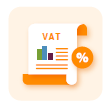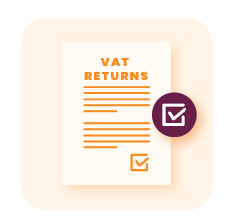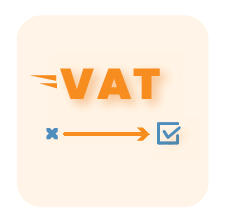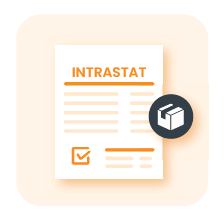Reverse Charge & “Call Off Stock” in Romania
Under the Romanian VAT Code, it’s typically the supplier of goods or services who is responsible for paying VAT. However, in certain situations, the responsibility to pay and declare VAT may shift to the receiver of the goods or services. This occurs under the reverse charge mechanism, where the VAT liability is reversed from the supplier to the recipient.
In scenarios where a non-resident supplier stores their products in the customer’s country, often within the customer’s facilities, until they are sold to a consumer, this arrangement is known as “call off stock.” Legal ownership of these products transfers from the foreign supplier to the customer only at the point of sale to the consumer.
Read more about Reverse Charge and “Call-off stock” in Romania in our comprehensive guide below.
Selling in Romania?
Romania – Call off stock
In Romania, selling call-off stock necessitates a registration obligation. Nevertheless, suppliers of call-off stock might be exempt from registering in Romania thanks to a simplification scheme designed for such transactions.
Simplifying the EU’s call-off stock regime
Effective January 1, 2020, standardized call-off stock arrangements were adopted across EU member states, Romania included, with the relevant directives being integrated into the 2016 Romanian VAT Code.
The simplification rule clarifies that the movement of goods between EU Member States is not treated as a VAT transaction. Instead, it’s the transfer of ownership of the goods that triggers VAT implications. Under this rule, the movement of goods is regarded as an intra-community supply of goods for the supplier and an intra-community acquisition for the recipient.
The call-off stock rules apply only when certain conditions are met, including:
- The goods must be transported to another Member State either by the supplier directly or by a third party on their behalf. This transfer should be with the intent to supply the goods to a recipient who will later acquire ownership through an existing agreement between the involved parties.
- The supplier must not be established nor have a fixed establishment in the Member State to which the goods are supplied.
- The recipient, who will eventually own the goods, must be registered for VAT purposes in the Member State where the goods are delivered.
- The supplier is required to maintain a record, known as a ‘call-off stock register,’ of the goods’ transfer. This register supports the claim for call-off stock simplification. Additionally, the supplier must record the transfer in the European Commission (EC) Sales List (ESL), clearly identifying the recipient and including the recipient’s VAT ID issued in the Member State where the goods are delivered.
- The actual supply to the intended recipient from the consigned location must occur within 12 months of the arrival of the goods.
When all these conditions are fulfilled, the call-off stock regime is mandatorily applied.
Download the Romanian VAT Guide
Romania – Import VAT
In Romania, Import VAT represents a specific type of VAT levied by Customs officers on goods imported from countries outside the European Union. This Import VAT is calculated on the total value comprising the cost of the goods, transportation charges, customs fees, any applicable consumption tax, and costs related to intra-EU transportation. While the standard rate for this VAT is 19%, certain cases may qualify for reduced rates of 9% or 5%, depending on the nature of the goods or services involved.
Exemption from Import VAT
In Romania, certain goods imported are exempt from import VAT. This exemption typically applies to goods that are also exempt from VAT when sold domestically.
Examples of such exempt imports include:
- Imports or goods acquired via intra-community acquisition that are exempt from VAT when sold in Romania.
- Goods imported and then sold as part of an intra-community supply.
- Consigned non-commercial goods with a value not exceeding EUR 45.
- Personal property imported into Romania.
- Imports made under diplomatic or consular arrangements, including duty-free goods.
- Imports by state bodies and organizations as part of international conventions or headquarters agreements.
- Goods temporarily exported and then reimported.
- Importation of gas through natural gas systems or related networks.
- Importation of sea products into ports.
- Imports of gold by the National Bank of Romania.
Deferral of the Romanian import VAT
When goods are imported into Romania, VAT payments on these imports are typically required to be made immediately upon the goods’ arrival. However, there’s an exception for importers who are registered for VAT in Romania and possess a VAT Payment Deferment Certificate. This certificate allows for the postponement of import VAT payment. Importers may request a VAT Payment Deferment Certificate under any of the following conditions:
- If the taxpayer’s total value of imports reached at least RON 100 million, equivalent to around EUR 22 million, in the previous calendar year or during the 12 months preceding the certificate application.
- For Authorized Economic Operators (AEO) who have acquired their AEO certificate in accordance with customs regulations and are registered for VAT in Romania.
- For VAT-registered taxpayers who have received authorization for customs clearance procedures to be conducted at their premises.
Last Updated: 03/01/2024
Disclaimer
The information provided by Global VAT Compliance B.V. on this webpage is intended for general informational purposes only. Global VAT Compliance B.V. is not responsible for the accuracy of the information on these pages, and cannot be held liable for claims or losses deriving from the use of this information. If you wish to receive VAT related information please contact our experts at support@gvc.tax








